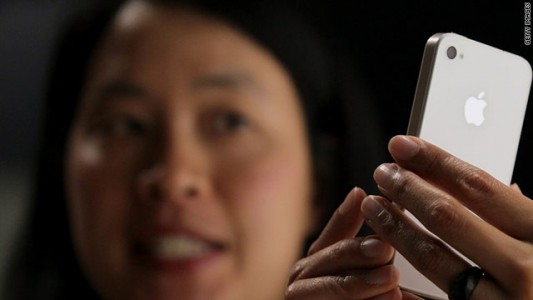Se apropie sfarsitul anului deci e vremea topurilor iar cei de la CNN au facut unul foarte interesant in care prezinta 10 dintre cele mai mari esecuri tehnologice, o lista din care compania Apple nu putea lipsi. In aceasta lista Apple este mentionata de 2 ori, prima oara cu scandaul privind problemele cu semnalul ale terminalului iPhone 4, denumit generic Antennagate, si a doua oara cu esecul retei de socializare Ping. So, din punctul de vedere al celor de la CNN, Apple a “comis-o” de 2 ori anul acesta insa per total a avut cel mai bun an din istoria companiei.
So, sa vedem pe scurt care sunt cele mai mari esecuri tehnologice ale anului 2010 :
1. iPhone 4 ‘Antennagate’
Apple drama — nothing brings out the diehard fans and Cupertino haters quite like this one. The newest iteration of the wildly popular smartphone was released in June. By all standards, it’s been a huge success. All standards except one. Some people couldn’t actually use it for phone calls. OK, maybe that’s an overstatement. But the Grip of Death (caused when users covered part of the antenna in a band around the phone’s edge) was real — and a big glitch in the device’s rollout. First Apple said the problem didn’t exist. Then they said it was a software issue. Then they kind-of admitted it existed and gave away free cases to help. Then, they said it doesn’t really exist anymore and stopped giving away the bumpers.
Months later, the problem is all but forgotten and the phones show no sign of dipping in popularity. So “fail,” in this case, is a pretty relative term.
2. 3-D TV
After being all the buzz at the trend-making Consumer Electronics Show Video in January, 3-D television didn’t do much of anything this year. Three-dimension movies may have taken over your neighborhood multiplex. But how many people do you know who will pay $4,000 or more for a TV that has a limited amount of special content and makes you wear special glasses in the comfort of your own home?
3. Microsoft Kin
We almost don’t have the heart to beat up on the Kins anymore. Having already served up the short-lived, tween-centric phones in our Thanksgiving all-time tech turkey list, we’ll just remind you that the Kin One and Kin Two (Born: April 2010. Died: July 2010) aimed to be the fun, social smartphone for kids but ended up as a sort-of iPhone Lite, with a pricier data plan than their limited functions could justify.
4. Nexus One
Speaking of phones that failed … Google’s Android phone operating system came into its own in 2010, actually outselling phones running Apple’s system by the end of the year. But Google’s effort at making their own phone to run it, the Nexus One, fizzled fast. And here’s the thing — just about everyone who tried out the Nexus One liked it. It had features to rival the iPhone’s, and reviewers were kind.
5. Facebook privacy
Nothing on the internet elicits as much squawking as a change to Facebook. Any change will do, really. But this spring, some of the roughly half-billion users on the site got really miffed when a handful of privacy bugs, among other things, made private chat conversations briefly visible to Facebook friends. And on April 21, Facebook CEO Mark Zuckerberg announced a new Facebook feature called the “Open Graph,” which essentially brings Facebook-like functionality to a number of websites.
6. Google Buzz
Buzz was supposed to be Google’s entry into the world of social networking in much the same way that Google Wave, which Google killed in August, was supposed to revolutionize real-time communication. But it didn’t help that, right out of the gate, Buzz’s default settings amounted to a privacy breach. Basically, if users didn’t tweak things at set-up, the people they e-mailed and chatted with the most through Gmail automatically became their followers.
7. Gawker media sites hacked
Two fails here, really. Fail No. 1: Gawker Media sites were breached in early December, with hackers saying they got access to the user names and passwords for about 1.3 million users of sites such as Gizmodo, Jezebel, Lifehacker and Kotaku. Fail No. 2: A published list of the most-popular passwords hacked showed that “123456,” “password,” “12345” and “qwerty” were at or near the top of the list. Sorry, folks. If those are your passwords, it’s awfully tough to feel sorry for you getting hacked.
8. Content farms
Creating click-bait junk on the internet didn’t start in 2010. But it certainly took off in a big way. Demand Media, Aol’s Seed and Associated Content, bought this year by Yahoo!, operate on a similar “content farm” model: They choose topics people are searching for on the internet, pay a “journalist” a tiny amount to write something — anything — about it, then slap it on the Web so people will click on it. According to a Wired article, industry “leader” Demand Media already was cranking out 4,000 videos a day in late 2009. And they were on pace to publish 1 million items a month by this summer.
9. Digg relaunch
It’s impressive that content-sharing sites such as Digg have clung to some degree of relevancy in an era when most people share their favorite digital content on Facebook and Twitter. But, to be sure, they’ve struggled. And a revolt by some vocal members of Digg this summer didn’t help. The site got a major overhaul to make it easier for users to find content.
10. iTunes Ping
There’s a whole social network set up in Apple’s iTunes store now. Didn’t know that? Well, there you go. Not all musical artists are on there. And it doesn’t integrate with Facebook. (Although Ping and Twitter just linked up). And, a lot of the time, it simply pushes you to buy music. Needless to say, Ping hasn’t really caught on.

















